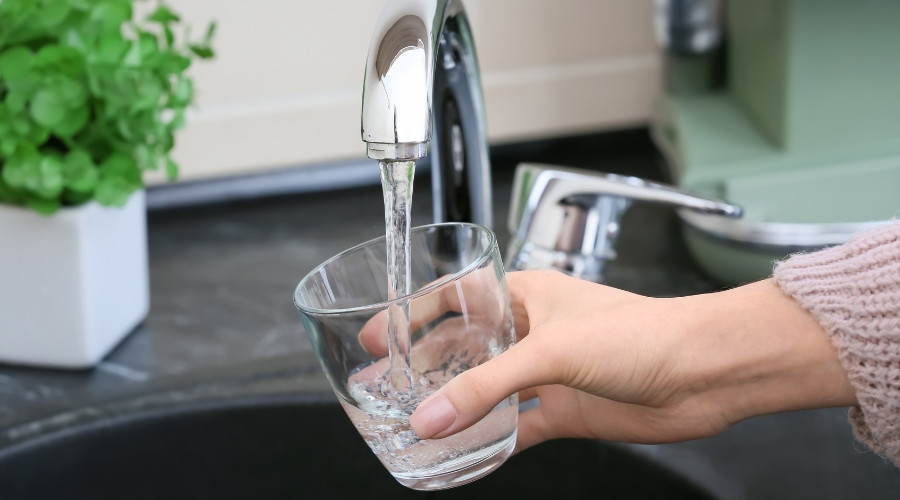Plumbers in Aurora, CO, discuss backflow testing and preventers to ensure water is clean and uncontaminated.
Denver, United States - September 24, 2025 / Your Plumber LLC /
The Importance of Backflow Prevention and Testing
Routine backflow testing is a practical safeguard that keeps drinking water safe from unintended cross-connections. Without periodic checks, a building’s water supply can be exposed to pollutants from irrigation, boilers, or other auxiliary systems. A straightforward backflow test verifies that protective equipment is working as intended, reducing risk and supporting long-term reliability. The overview below explains why this service matters, how a backflow prevention device functions, and what routine care looks like in practice.
What Is Backflow?
 Backflow occurs when water reverses direction in plumbing lines and allows non-potable water to enter the clean supply. This reversal typically happens for two reasons. Back-siphonage draws contaminants into potable lines when supply pressure drops, while back-pressure forces polluted water upstream when downstream pressure exceeds the normal supply. Either condition can move debris, bacteria, fertilizers, or other substances into drinking water in a short time.
Backflow occurs when water reverses direction in plumbing lines and allows non-potable water to enter the clean supply. This reversal typically happens for two reasons. Back-siphonage draws contaminants into potable lines when supply pressure drops, while back-pressure forces polluted water upstream when downstream pressure exceeds the normal supply. Either condition can move debris, bacteria, fertilizers, or other substances into drinking water in a short time.
Because this risk affects more than a single property, backflow control plays a vital role in protecting public health. A properly selected and installed backflow preventer isolates potential hazards so contaminants cannot travel into potable piping. In both residential and commercial settings, consistent attention to cross-connection control helps keep water systems free from water contamination and safeguards the larger distribution network.
What Is Backflow Testing?
Backflow testing is a structured assessment that confirms a backflow prevention device is operating correctly. During a backflow test, a certified professional uses calibrated gauges and established procedures to check internal components such as check valves, relief valves, and seals. The goal is to verify that the device holds proper pressure and prevents reverse flow under realistic conditions.
Because backflow preventers include moving parts, routine inspection is necessary. Over time, springs can weaken, seals may deteriorate, and mineral buildup can interfere with normal operation. Many local water authorities require regular backflow testing and documentation to ensure that cross-connection control remains effective. If a device does not pass, the technician identifies the cause, performs the needed repairs, and retests to confirm that the backflow preventer once again provides reliable protection.
For many properties, coordinating the backflow test with other plumbing maintenance streamlines compliance and helps maintain accurate records. The process is generally efficient and minimally disruptive while providing significant peace of mind.
The Importance of Routine Backflow Testing
 Ongoing testing forms the first line of defense against water contamination. Verifying performance means that contaminants from irrigation systems, hydronic heating loops, fire sprinklers, or equipment connections cannot enter potable lines during pressure changes or service interruptions. Regular backflow testing also prevents small issues from escalating, catching wear or debris buildup before it compromises the device’s protective barrier.
Ongoing testing forms the first line of defense against water contamination. Verifying performance means that contaminants from irrigation systems, hydronic heating loops, fire sprinklers, or equipment connections cannot enter potable lines during pressure changes or service interruptions. Regular backflow testing also prevents small issues from escalating, catching wear or debris buildup before it compromises the device’s protective barrier.
Protecting the plumbing system is another advantage. When untreated water flows backward, corrosive substances can damage piping, fixtures, and appliances. Early detection through a scheduled backflow test helps avoid costly repairs and prolongs the service life of downstream components. In addition, current test reports support compliance with local codes and utility requirements, ensuring continuity of service.
Most importantly, consistent attention to backflow protection contributes to public health. By keeping pollutants out of shared water supplies, communities reduce the chance of exposure to harmful materials at the tap. Paired with proper device selection, professional installation, and timely repairs, routine testing helps ensure that each backflow prevention device performs reliably when pressure conditions fluctuate.
For a comprehensive approach, consider the following steps:
- Select the appropriate backflow preventer for each cross-connection and ensure professional installation.
- Schedule periodic backflow testing and maintain clear records of results and repairs.
- Address any issues promptly to restore full protection and reduce system wear.
- Reevaluate device type and placement after building changes, equipment upgrades, or new irrigation connections.
Taken together, these measures help maintain high water quality standards, reduce the risk of water contamination, and support a safer, more resilient water system for occupants and the surrounding community.
About Your Plumber LLC
Your Plumber LLC is a plumbing, cooling, and heating company with a reputation for excellence and reliability in Aurora and the surrounding areas. They provide straightforward pricing and on-time service from friendly and professional technicians utilizing the latest technology. Call them now to schedule Backflow Prevention Services in Aurora, CO.

Contact Information:
Your Plumber LLC
Denver, CO 80239
United States
Doug Shields
(720) 620-6990
https://yourplumber303.com/


